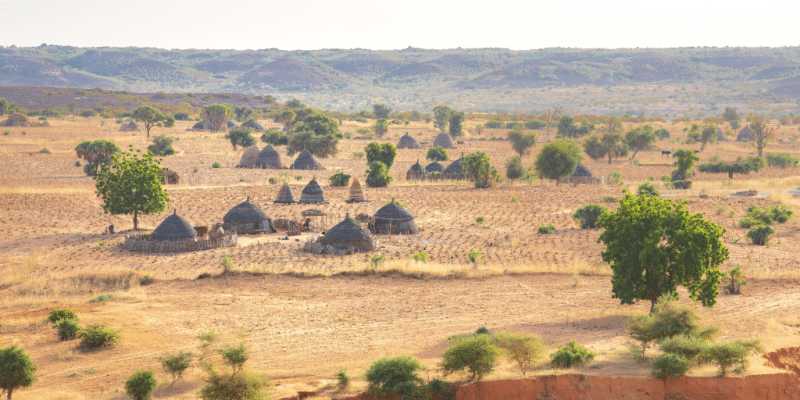With the aim of strengthening the resilience of its population in the face of climate change, which is exacerbating food insecurity, the Nigerian state of Yobe will benefit from a $70 million loan. The first part of this debt has just been granted by the African Development Bank (AfDB).
At a time when the Nigerian state of Yobe is facing food insecurity exacerbated by climate change, the Board of Directors of the African Development Bank (AfDB) Group has approved $50 million in financial support. The loan is intended to finance the Environment and Climate Change Action Project (ECCAP) in this state in north-eastern Nigeria.
The aim for the local government is to improve food security and the livelihoods of its 3.6 million inhabitants. ECCAP is a “very practical and concrete project that tackles the problems of insecurity, and more generally vulnerability, but also food security and the restoration of a degraded environment. It’s about knowing how to build resilient livelihoods,” explains AfDB President Akinwumi Adesina.
Restoring the forest landscape
As part of the ECCAP project, local people will engage in a genuine fight against desertification in the areas of Gujba, Damaturu, Fune, Tarmuwa, Bursari, Geidam, Yunusari, Yusufari, Nguru, Fune, Fika, Potiskum, Gulani Machina, Jakusco, Karasuwa and Bade. To achieve this, at least 20 million tree seedlings will be scattered over 120,000 hectares. Among the species selected are gum arabic, neem and Prosopis, which grow in this part of the Sahel and provide the population with a variety of means of subsistence, as well as acting as windbreaks against desertification.
Read also- NIGERIA: CFM and Microsoft invest $18 million in clean energy trading
There are also other fruit trees that are useful to the local population, such as date palm, doum palm, kenaf, mango and tamarind. These trees will be planted on 11 sites, totalling 40.5 hectares of land. Through the ECCAP, the government of Yobe State intends to contribute to achieving the continental objective of restoring 100 million hectares of degraded land (AFR100) by 2030. Nigeria as a whole will contribute by restoring 4 million hectares of land.
A payment system for ecosystem services
In the State of Yobe, where the need to restore land degraded by drought is more urgent, and in a context of insecurity, the ECCAP project will be made sustainable through the introduction of a system of payments for ecosystem services (PES). In concrete terms, the system will encourage the population to maintain 2 million regenerated trees on farms and will support payments for labour and related services.
The Yobe government’s initiative will require an overall investment of 101.34 million dollars. Of this funding, $30 million will be lent by the Arab Bank for Economic Development in Africa (BADEA). The local government will contribute $4.52 million. The estimated 3.5 million people who will benefit from the project will contribute $16.82 million.
Jean Marie Takouleu







